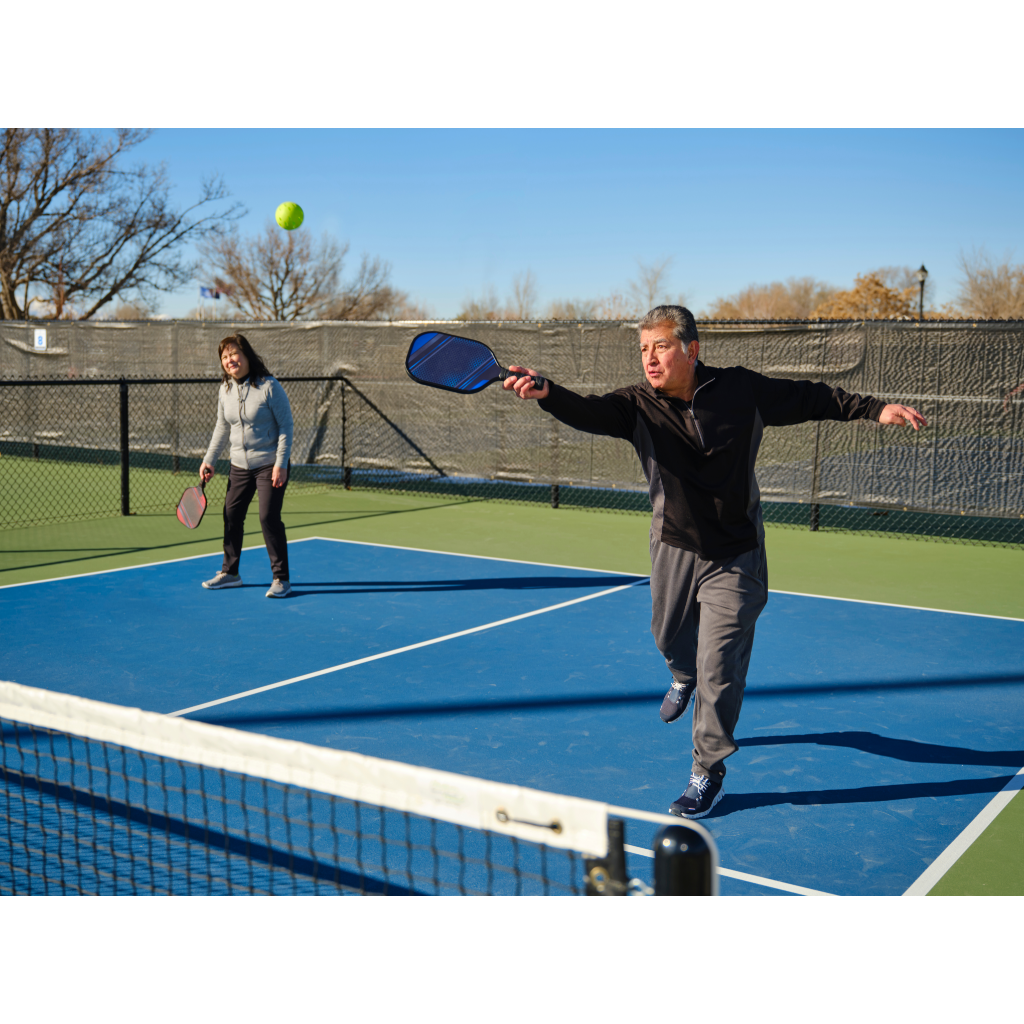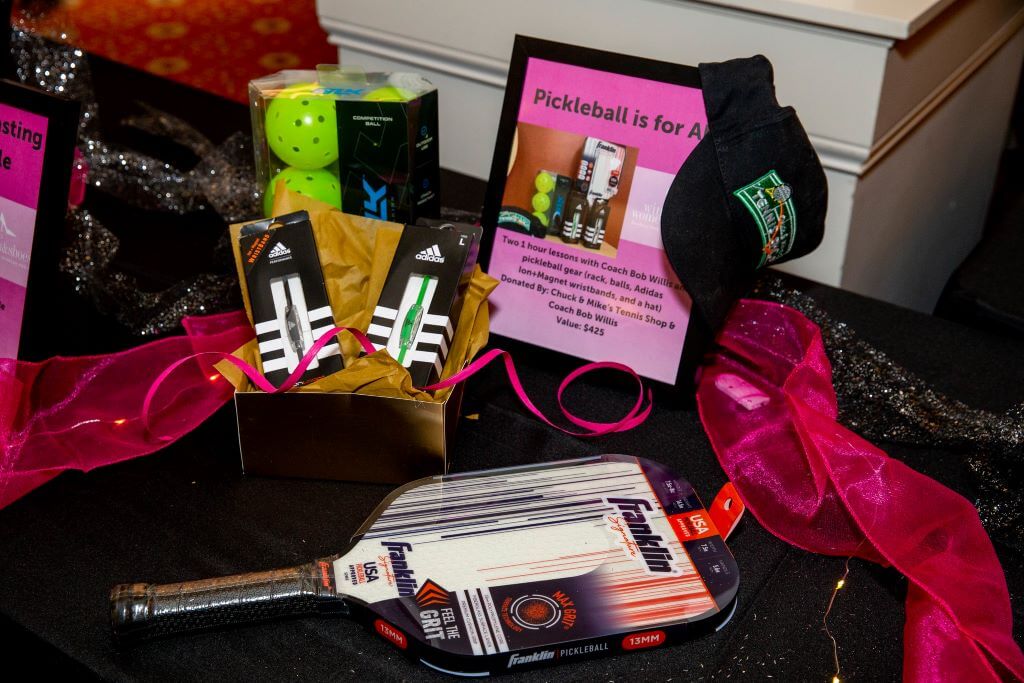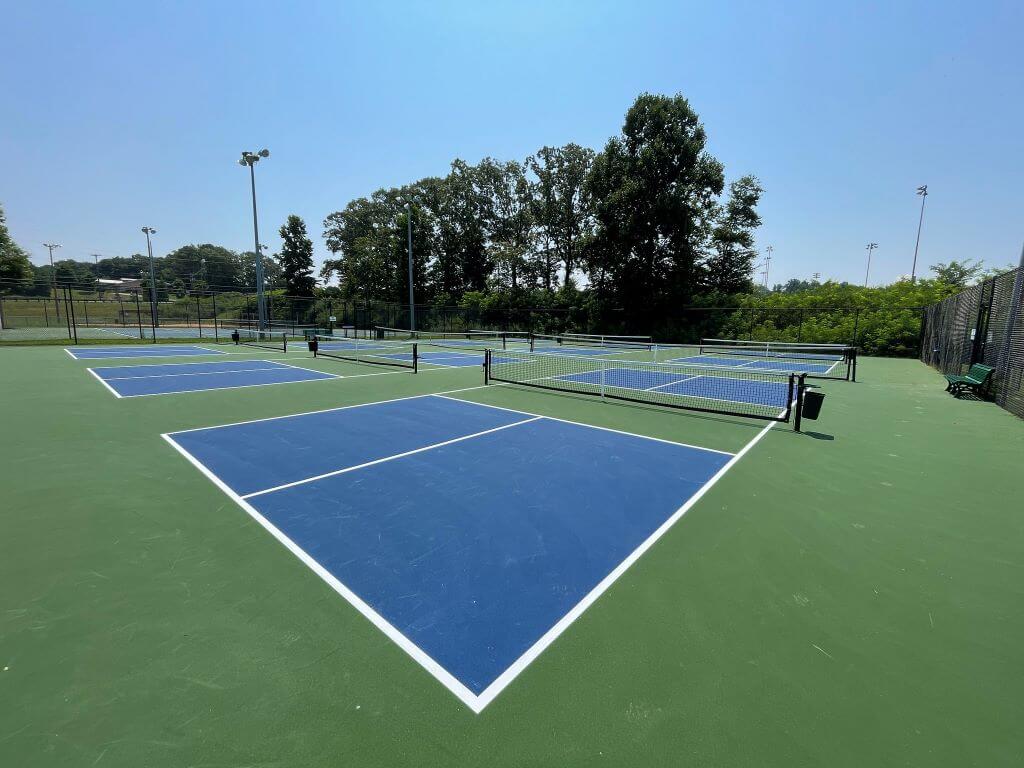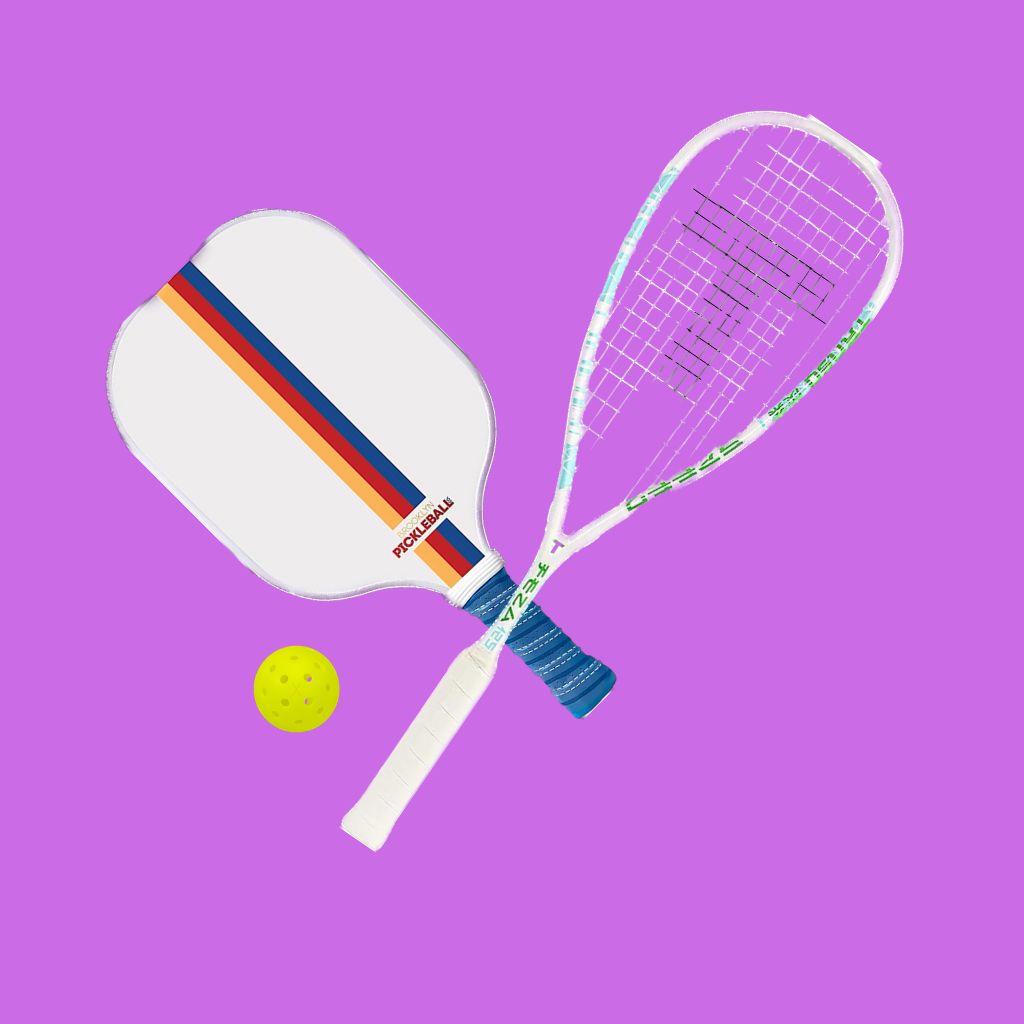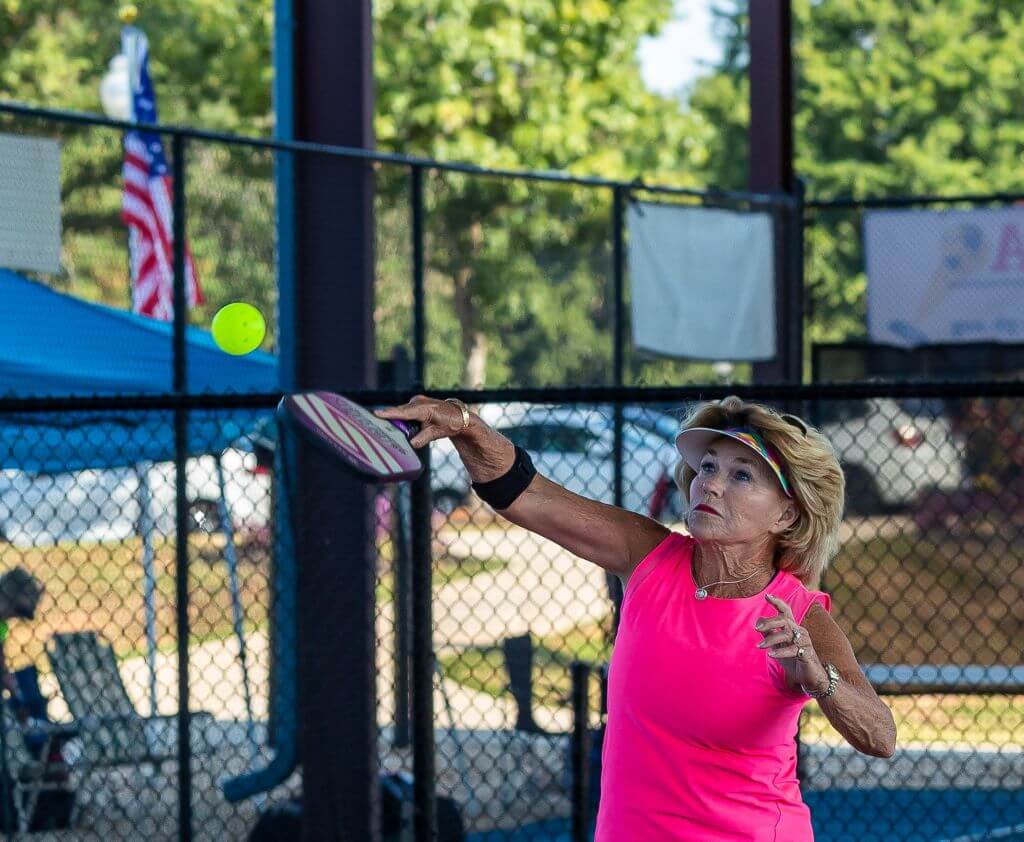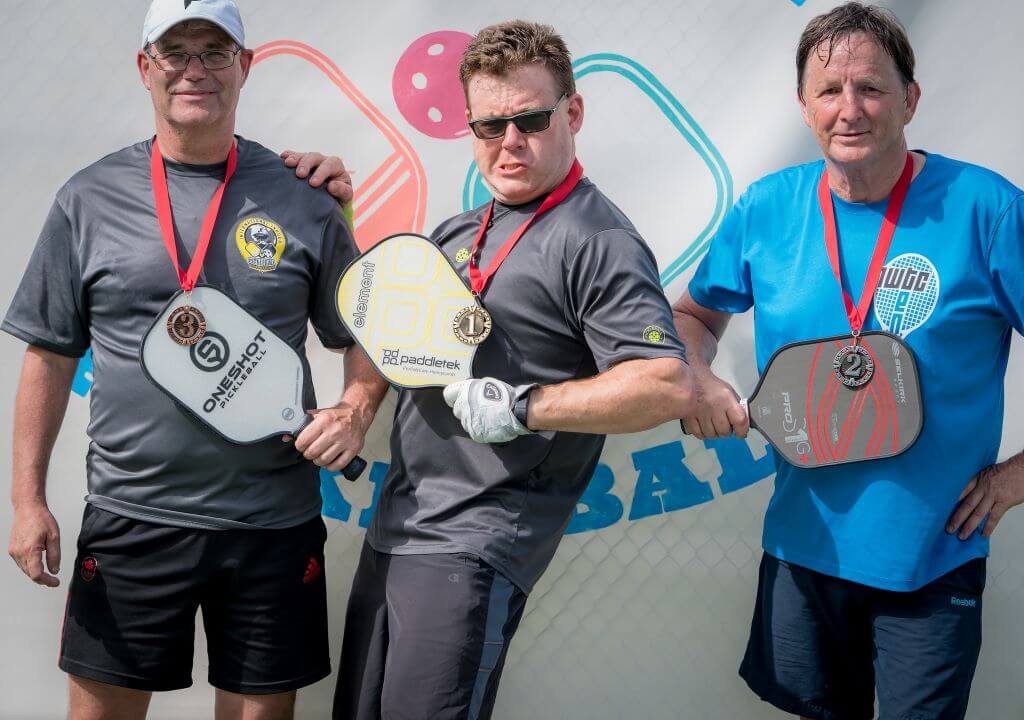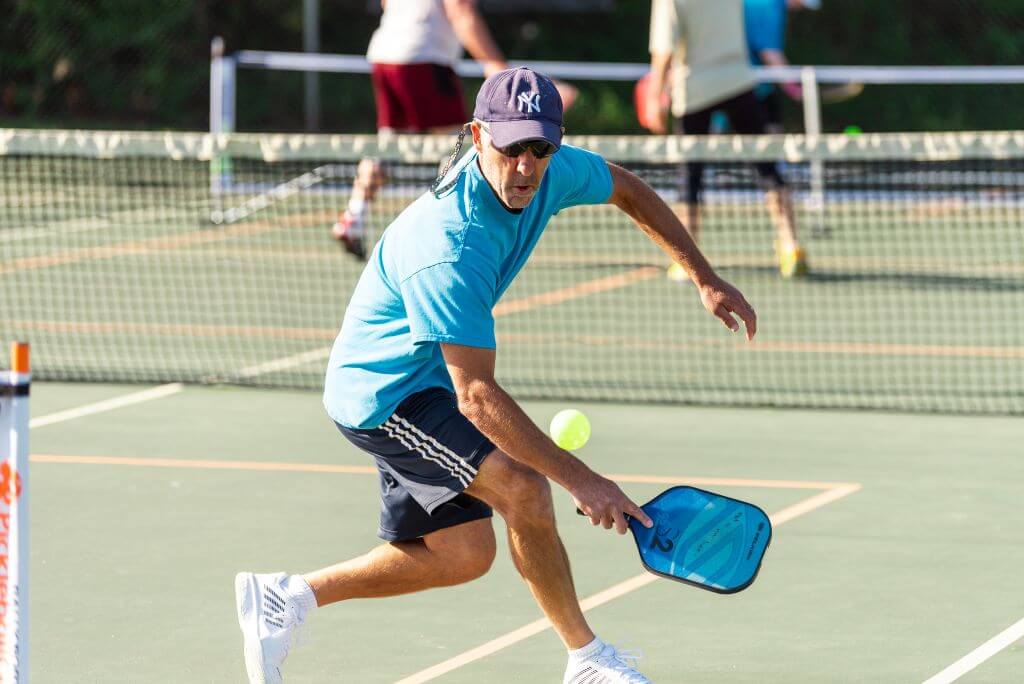Change is unavoidable during periods of exponential expansion, such as the one that pickleball is currently experiencing, as indicated by the increase in membership. One of the key changes that occurs during growth is governance, or the rules of the game. A USA Pickleball rules committee and its board of directors adopted amendments to the 2023 rules of play.
These pickleball game rule changes for 2023 will keep the sport balanced. Further, this will ensure that everyone gets the opportunity to compete. Indeed, it is critical to stay up to date on pickleball rule changes in order to make the correct call on the pickleball court.
1. No more One-Handed Spin Serve
The 2021 calendar year generated one of the most heated rules debates in years. Its main concentration was on the serve. In response, USA Pickleball banned the “chainsaw serve” in the 2022 calendar year. However, USA Pickleball chose to leave the door open for a “one-handed spin serve” at the moment.
The one-handed spin serve currently does not exist under the 2023 pickleball regulations. Specifically, some natural rotation of the ball is expected during any release of the ball from the hand. However, the server must impart manipulation or spin the ball just before serving. This holds true for both volley and drop serves.
With this rule change on spin serve, pickleball players must now focus on power and placement. Alternatively, practice spinning the pickleball exclusively with your paddle when it makes contact with your serve.
2. Replay for a Violation of Certain Rules
Prior to 2023, a violation of the service motion or ball release regulations resulted in a fault and loss of your serve. Starting in 2023, any such infraction may now result in a replay. If the referee is unsure if a serving infraction happened, he or she may request a replay. If the referee feels that a serving infringement occurred, the referee may also call an immediate fault.
It’s important to note that service foot errors are not covered by this new replay regulation. It does, however, apply to any imposed spin. The new replay rule must also be used, according to the referee. In contrast, the receiver may request a replay if they are unsure whether something in their hand made contact with a clearly spinning ball during an unofficial match or if they are unable to witness the ball’s release. Prior to the return of serve, the player must request a replay.
Some players may appear to be encouraged to “push the envelope” as a result of this rule change. The server can determine the rules, while the receiver can request a replay on strong serves.
3. Wrong Score Called
In terms of “about-faces,” one change from the previous year has been reversed. Pickleball regulations were revised in 2022 to prevent a player from interrupting play after the serve owing to a wrong score being called. Starting in 2023, the pickleball regulations will revert to the prior rule regarding wrong scores.
If a player stops playing after the return of serve, that player has committed a fault. Also, if any player stops playing while the score is correct, it will result in a fault. So, if the wrong score is called, either rectify it immediately or wait until the rally is over.
4. Attention to the Clothing
Pickleball rules currently include two guidelines regarding the color of your attire on the pickleball court. First, as a matter of sportsmanship, pickleball players should avoid wearing clothing that closely resembles the ball color. Further, if there are any close colors in a pickleball event, the tournament director may request a player to change apparel that are improper. This includes clothes that closely match the color of the ball.
Avoid wearing clothing that matches the color of the ball in play. This can put opponents at a visual disadvantage. While there is no penalty for clothing matching the ball color, it becomes an example of etiquette.
5. Pickleball Game Rule Changes for Equipment Time-Outs
This rule change affects tournament players more. Previously, if your equipment malfunctioned, you had to utilize a time-out or time between games to adjust or replace it.
A referee can now award an equipment time-out to facilitate any necessary equipment adjustment or replacement, preventing players from having to use their valuable equipment time-outs. Non-officiated play encourages players to collaborate to give an acceptable concession in these cases as well.
6. Rules Pertaining to Balls Hitting Players
After serving, the ball should make no touch with anything other than the player’s paddle. The ball may not make contact with a player’s body, hair, clothing, or shoes.
According to the pickleball game rules changes, if a player is changing hands with both hands on the paddle or performing a two-handed stroke and either hand is hit below the wrist, the ball is still in play as long as the player’s hand(s) are in contact with the paddle. The player who was struck by the ball is at fault. Furthermore, if a player stops a live ball before it becomes dead, such as catching it in mid-flight, it will be the player’s fault.
7. Challenging the Opponent’s Call
As per the pickleball rules changes, a player must not question or remark on an opponent’s call. It does, yet, allow them to appeal to the referee. Yet, they must do so before the next serve. There is no penalty. But, the referee provides a behavioral guideline.
Other Important Rule Changes
The rule changes will ensure the integrity of the game for the foreseeable future. Furthermore, periodical rule change is best for the players. The rule changes also assist to decrease the possibility of dispute between referee and players on the pickleball court.
The new rule states that referees can stop play when a player correctly detects a player who is out of position or when they notice an improper service order. Instead than being a flaw, this now allows players to retry the point. Another rule amendment addressed the replacement of a damaged or broken ball. When there is no referee present, both sides may change the ball between points. When one is, any player may request a ruling. If a ball looks to be damaged during live play, play continues until the rally ends.
Final Words
It is critical to stay up to date with the latest pickleball rule changes in 2023. Indeed, this will help to better both the game and your approach. The new rules will almost certainly enhance the country’s fastest growing sport. Indeed, it will improve pickleball and the pickleball community more than ever before.



















